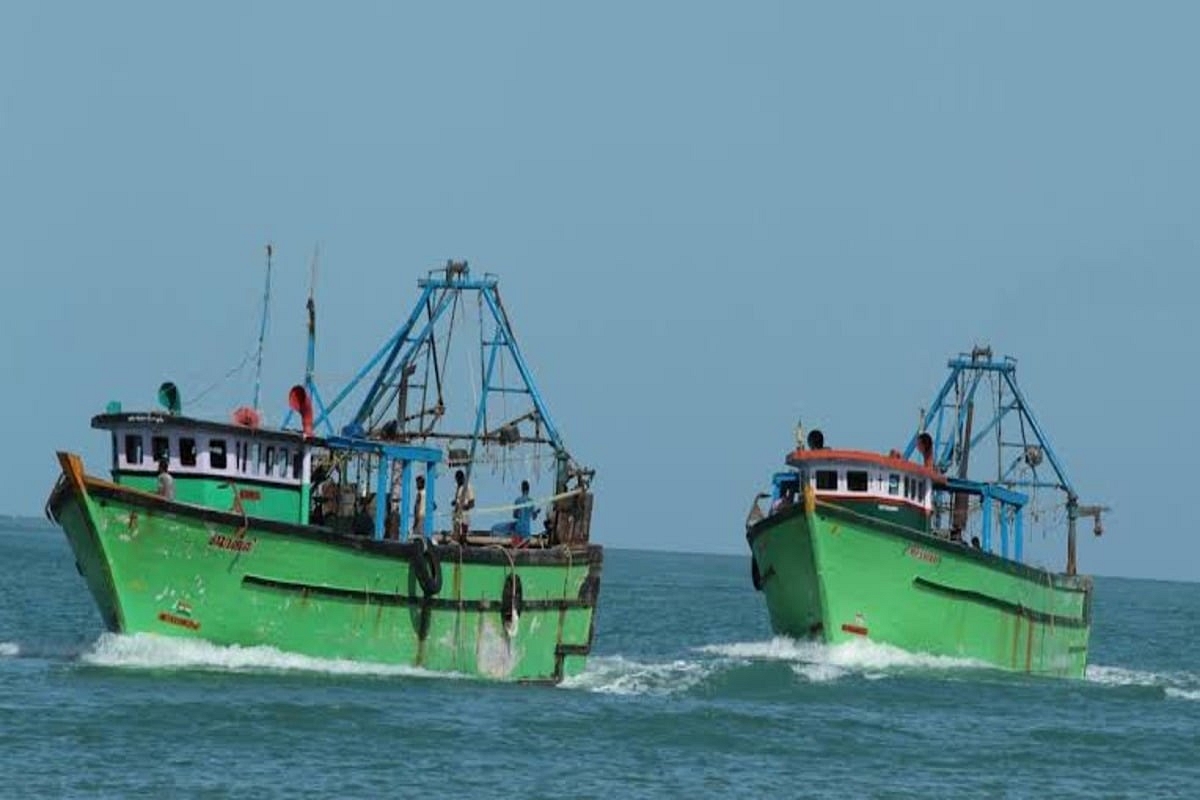Tamil Nadu
Casting A Lifeline: Deep Sea Fishing Is The Only Solution To The Many Woes Of Tamil Nadu Fishermen

Cost of a single deep sea fishing boat was estimated to be Rs 80 lakh.
Fishermen in Rameswaram have been on strike since the past few days demanding the release of their fellow fishermen, who were jailed by a Sri Lankan court earlier this month, for allegedly crossing over into that country's territorial waters near Neduntheevu (Delft Island).
They have refused to go to the sea unless there are safeguards to prevent their arrests and imprisonment.
The strike has also meant that people from Tamil Nadu who traditionally attend the annual festival of the St. Anthony’s church in the nearby Katchatheevu island, would not be able to participate this time.
As per the 1974 agreement, under which India gave the island to Sri Lanka, Indians do not need a visa to attend the festival. Fishermen are allowed to dry their nets and catch.
According to a report by India Today, 240 Indian fishermen were arrested by the Sri Lankan Navy last year and 35 trawlers were seized. Many fishermen have been released after efforts by the Indian government, but the news of fresh arrests keeps coming every few days.
There have also been a number of incidents in which Indian fishermen are attacked and robbed of their catch, GPS equipment, walkie-talkies, mobile phones and belongings etc in the sea by unidentified persons, who have been suspected to be Sri Lankan nationals.
After about eight such incidents between August and December last year, a similar one happened earlier this month.
Recently, a delegation of fishermen from the state met External Affairs Minister Jaishankar in Delhi along with Minister of State for Fisheries, L Murugan to put forth their concerns.
Along with the arrests, a major concern of the fishermen is that their boats and trawlers, which are seized by the Sri Lankan navy, are not returned, pushing them into financial difficulties.
While we do not know how long this issue is going to take to be resolved, it is important that India encourages deep sea fishing in the Bay of Bengal in order to reduce the dependence on the Palk Strait and Palk Bay. This would need the active involvement of the state government too.
The Deep Sea Fishing Scheme For Tamil Nadu's Fishermen
A deep sea fishing scheme for Tamil Nadu's fishermen was launched by the central government in July 2017 with the target of replacing 2,000 trawlers with deep sea fishing boats in the next three years.
Apart from reducing the pressure on the Palk Strait and Palk Bay region, the scheme also has the objective of putting an end to the practise of bottom trawling, which has damaged the ecology and depleted fish in these two areas.
The cost of a single deep sea fishing boat was estimated to be Rs 80 lakh and the funding arrangement was as follows — 50 per cent to be borne by the centre, 20 per cent by the state government, 20 per cent by institutional financing and the remaining 10 per cent by the beneficiary.
Progress in the scheme has however been slow with 55 such boats being handed over in five years, according to a reply in the state assembly by Tamil Nadu Fisheries Minister Anitha Radhakrishnan in 2023.
Reasons for the delay include a rise in costs, a lack of interest among beneficiaries, unwillingness of banks to lend and higher cost of voyages.
Advantages And Potential Of Deep Sea Fishing
Speaking at a fisheries conference held at Ahmedabad in 2023, Dr Sanjay Pandey, the Deputy Commissioner of Fisheries said that Indian Ocean yellowfin tuna has an end value of more than $4 billion.
At the very same conference, Dr Arthur Neiland, a consultant with the World Bank, highlighted the untapped potential.
He stated that of the estimated harvest of 179,000 tonnes of yellowfin and skipjack tuna fish in the nation's Exclusive Economic Zone (area upto 200 nautical miles beyond the territorial waters), India had harvested just 12 per cent, ie, 25,259 tonnes.
It is also likely to be more remunerative as fishermen would be able to access a larger variety of fish and sea food items, which could then be used to make processed foods that would cater to the domestic as well as export markets.
While there are challenges and solutions to these need to be worked out with the participation of all stakeholders, there is no doubt that deep sea fishing is the way forward.
Support Swarajya's 50 Ground Reports Project & Sponsor A Story
Every general election Swarajya does a 50 ground reports project.
Aimed only at serious readers and those who appreciate the nuances of political undercurrents, the project provides a sense of India's electoral landscape. As you know, these reports are produced after considerable investment of travel, time and effort on the ground.
This time too we've kicked off the project in style and have covered over 30 constituencies already. If you're someone who appreciates such work and have enjoyed our coverage please consider sponsoring a ground report for just Rs 2999 to Rs 19,999 - it goes a long way in helping us produce more quality reportage.
You can also back this project by becoming a subscriber for as little as Rs 999 - so do click on this links and choose a plan that suits you and back us.
Click below to contribute.
Latest